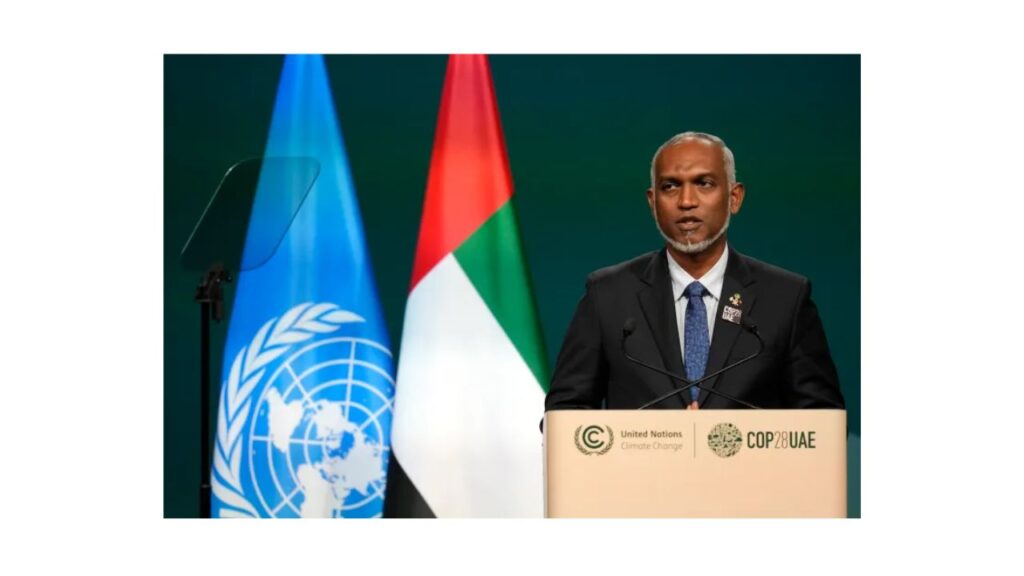The ban on the Indian Ocean archipelago is a show of support for the beleaguered people of Gaza, who are suffering from starvation and ceaseless attacks.
As popular discontent over the Gaza War grows in the primarily Muslim country, the Maldives, an Indian Ocean archipelago noted for its white sand beaches and opulent resorts, the Maldives government has decided to bar Israelis from visiting.
Without specifying when the new law will go into effect, a spokeswoman for President Mohamed Muizzu’s office stated in a statement that the president has “resolved to impose a ban on Israeli passports.”
Muizzu also revealed “Maldivians in Solidarity with Palestine,” a nationwide fundraising initiative. Last year, almost 11,000 Israelis traveled to the Maldives, making up 0.6% of all visitors.
Additionally, according to official data, there were 528 Israeli visitors to the Maldives in the first four months of this year, an 88 percent decrease from the same period the previous year.
Muizzu has been under pressure from opposition parties and government allies in the Maldives to forbid Israelis as a protest against the Gaza war. Since October 7, there have been at least 36,439 Palestinian deaths and 82,627 injuries due to the violence.
‘We’re good’
Early in the 1990s, the Maldives lifted a previous ban on Israeli tourists, and in 2010, steps were taken to mend relations. Nevertheless, attempts at normalization were abandoned once President Mohamed Nasheed was overthrown in February 2012.
An Israel Foreign Ministry spokeswoman called on citizens who were in the Maldives at the time of the ban to leave. “It is advised that Israeli citizens who choose to remain in the country think about leaving, as it will be challenging for us to assist them in the event that they encounter difficulties for any reason.”
Additionally, entry into Algeria, Bangladesh, Brunei, Iran, Iraq, Kuwait, Lebanon, Libya, Pakistan, Saudi Arabia, Syria, and Yemen has been prohibited for holders of Israeli passports.
The State of Israel responded to a post on X in March regarding these countries’ entry bans, which were in effect before the start of the ongoing conflict in Gaza, with the words, “We’re good.”
